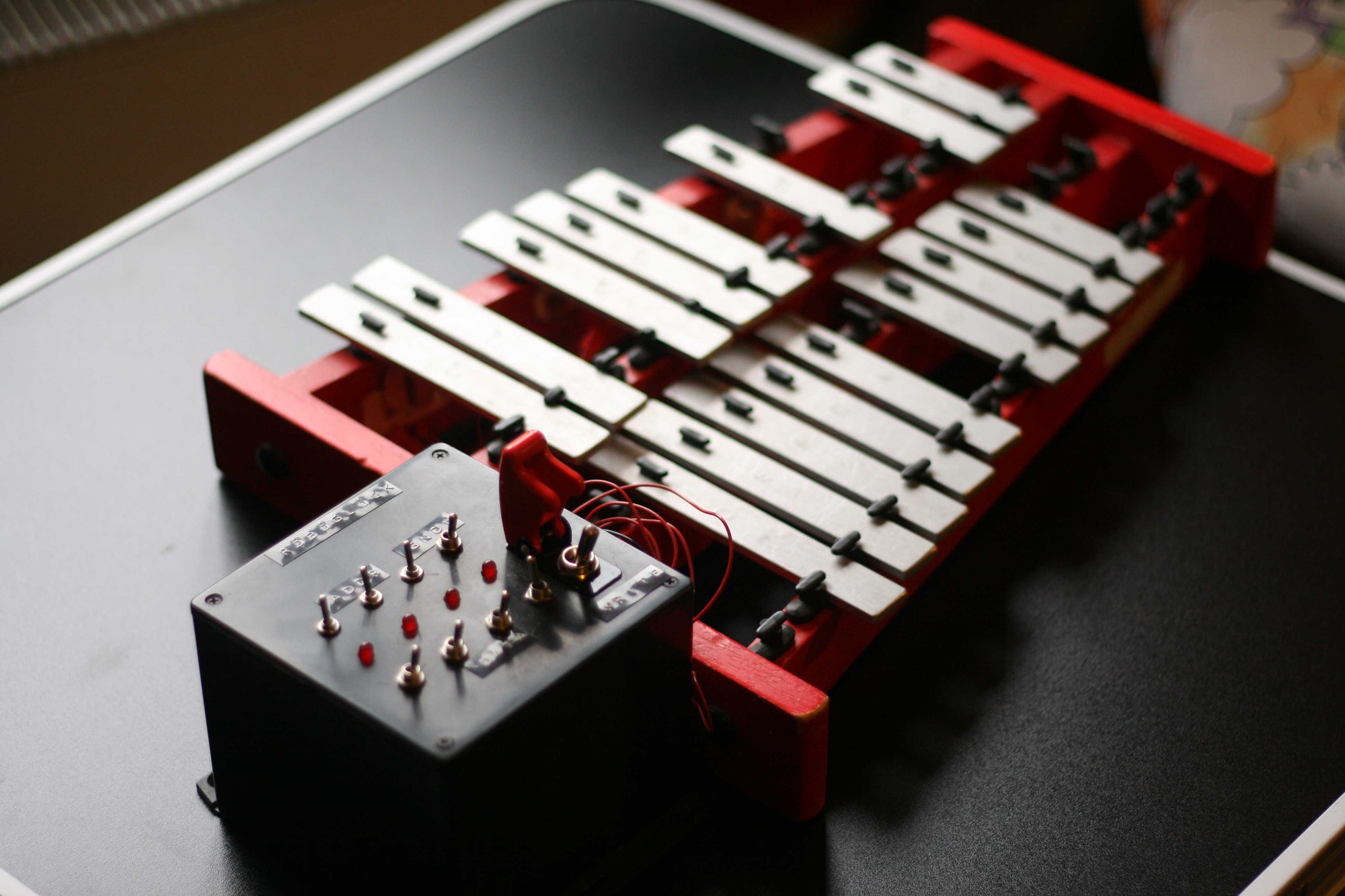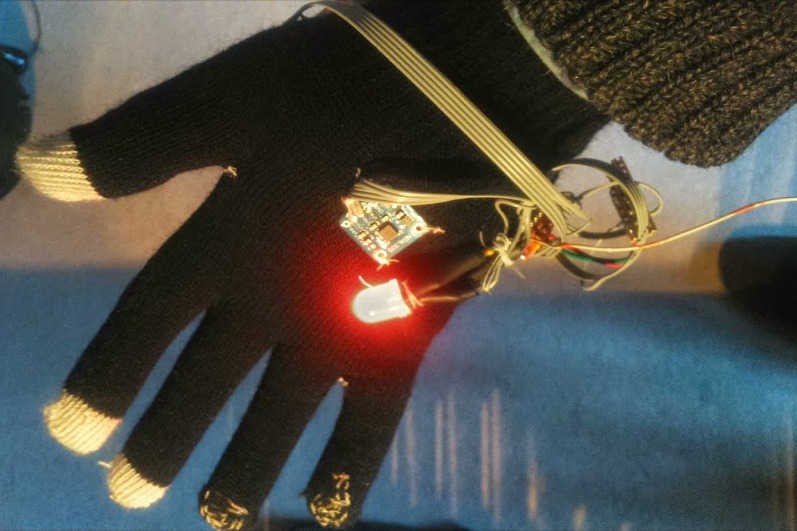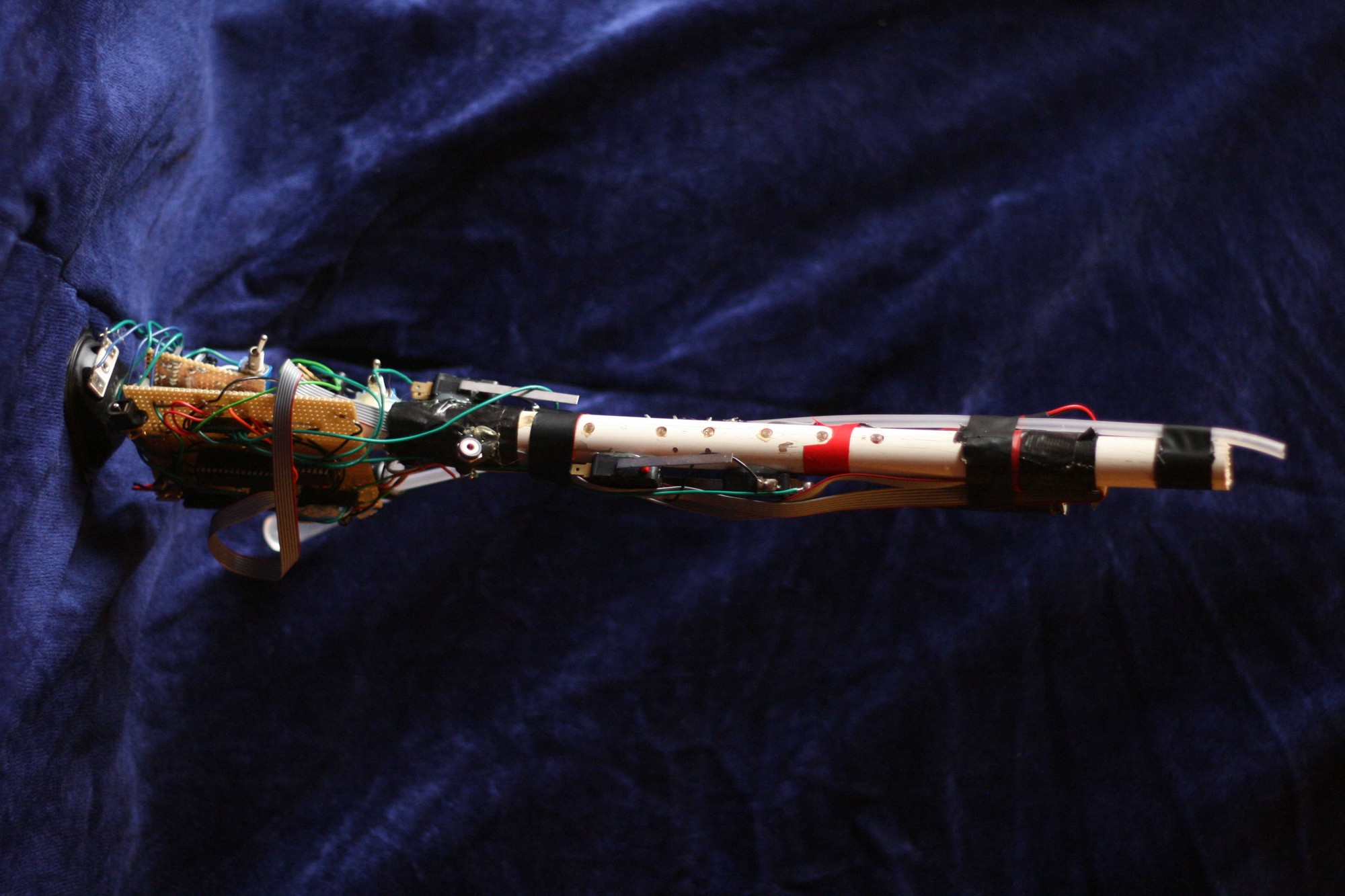Instruments
Sometimes I make odd musical instruments. Here are a few of them.
The Roboglock

This is a self-playing glockenspiel. The user interface (such as it is) works like an old mainframe control panel: you set a binary register address with four switches, set a data value with four others, and toggle the “write” switch. Easy. It plays pentatonic tunes based on cycles of numbers of different lengths which drift in and out of phase.
It’s based on an ATMega328, with a PIC handling the user interface. The strikers are underneath the bars, and use solenoids made of cut-up Biros wrapped in copper wire. Here’s a video of the breadboard version:
The Dataglove

This is based on an Moteino1, one of those cheap gloves with conductive tips that were all the rage a few years back, some conductive thread, an LED and a 3-axis accelerometer. It communicates with a base station2, sending back the accelerometer readings and the voltage of the four finger pads. These are normally held high and the thumb pad is grounded. The base station can also send commands to change the RGB LED.
I use it to control musical performances with gestures. Here’s a video of the system at work, featuring my friend Cêt Haf. Hard to see what’s going on here, but it does work: the glove is controlling a set of SuperCollider instruments (via an Angort script).
The Bloody Stupid Johnson Memorial Electroboe3
This absurd machine is again ATMega based. It uses a pressure sensor to handle the volume (and timbre) and a set of light-dependent resistors for the pitch: covering a resistor is like covering a hole on a real instrument. There are also a couple of switches for octave and semitone. It makes a truly terrible sound, and the light levels have to be consistent for it to work.

And here’s me playing it, badly. I don’t think it’s possible to play it well.